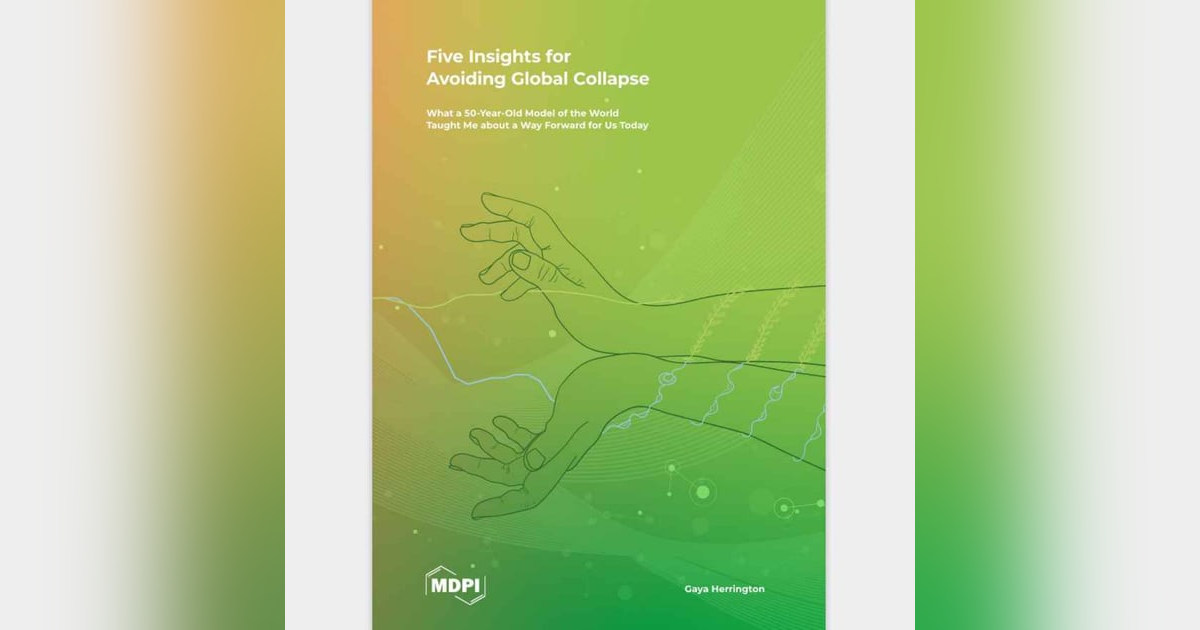643: Gaya Herrington, part 3: Five Insights for Avoiding Global Collapse

At the end of our second conversation, Gaya was finishing her book, leaving KPMG, and soon starting at Schneider Electric. The book just came out, Five Insights for Avoiding Global Collapse: What a 50-Year-Old Model of the World Taught Me About a Way Forward for Us Today (a free download), and she's worked at Schneider a while.
We talk about the book, how the world has tracked two of the Limits to Growth simulations, and how working at Schneider is.
The book treats how to respond to a complex, systemic problem, which is different from how to respond to a simple, linear problem. I consider the advice right on, rare to find, even among environmentalists. To change a system, some of the best levers are its goals and values. Don't change them and you retain the system you're trying to change, which most people are doing.
Gaya's views are a breath of fresh air that give direction for people who want to lead to act.
- Gaya's new book, Five Insights for Avoiding Global Collapse: What a 50-Year-Old Model of the World Taught Me About a Way Forward for Us Today (a free download)
About the book:
Looming environmental and social breaking points, like climate change and massive inequalities, are becoming increasingly apparent and large in scale. In this book, Gaya Herrington puts today’s key societal challenges in perspective. Her analysis, rooted in her research on a 50-year-old model of the world that forecasted the onset of global collapse right around the present time, brings some structure to what otherwise might feel like the overwhelming task of achieving genuine societal sustainability.
Herrington's research, first published in 2020 in Yale‘s Journal of Industrial Ecology, went viral after it revealed empirical data tracked closely with the predictions of this world model, which was introduced in the 1972 best seller The Limits to Growth. Her book Five Insights for Avoiding Global Collapse contains an exclusive research update based on 2022 data and is written in a more personable and accessible style than the journal article. Herrington also elaborates more in this book on the many interlinkages between our economic, environmental, and social predicaments, and on what her findings indicate for future global developments.
Herington lays out why “business as usual” is not a viable option for global society and identifies the root cause of this unsustainable path. Most importantly, her book teaches us what systemic changes humanity still has time to make to achieve a better tomorrow. A future in which society has transformed beyond the mere avoidance of collapse and is truly thriving.
Hosted on Acast. See acast.com/privacy for more information.







